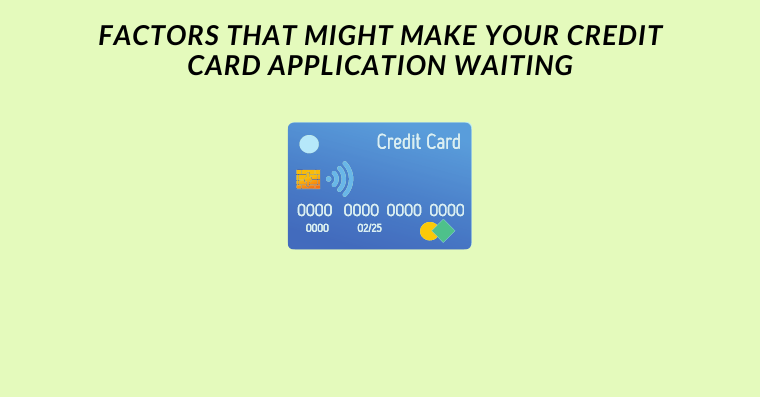Factors that Might Make Your Credit Card Application Waiting


A credit card is a powerful tool that can provide financial flexibility and rewards, but with so many options available, it can be difficult to know where to start. Choosing the right credit card can have a significant impact on your financial well-being. So it’s essential to take time to find the one that’s right for you. In this article, we will discuss the things you should look for when selecting a credit card.
The first thing to consider when selecting a
credit card is the interest rate. Credit card interest rates can vary widely,
so it’s essential to compare the rates offered by different cards to find the
best deal. If you plan to carry a balance, look for a card with a low-interest
rate. If you plan to pay off your balance in full each month, a higher interest
rate may be less of a concern.
Credit card rewards and benefits can be
significant factors in selecting a card. Look for a card that offers rewards or
cash back on the types of purchases you make most frequently. For example, if
you spend a lot on groceries and gas, look for a card that offers rewards for
those purchases. Additionally, look for other benefits such as travel perks,
insurance coverage, and extended warranties.
Credit card fees can eat into your rewards and
savings, so it’s important to be aware of any fees associated with a particular
card. Look for a card with no annual fee or low annual fees, and avoid cards
with high late payment fees or over-limit fees. Also, be aware of foreign transaction
fees if you plan to use your card while traveling internationally.
The credit limit is the maximum amount you can
charge on your credit card. It's important to choose a card with a credit limit
that suits your needs. If you plan to use your card for large purchases, look
for a card with a high credit limit. However, be sure to avoid a credit limit
that's too high, as it can be tempting to overspend.
Some credit cards have strict credit score
requirements, while others are more lenient. If you have a low credit score,
look for cards that are designed for people with less-than-perfect credit. If
you have a high credit score, look for cards that offer the best rewards and
benefits.
Good customer service can be invaluable when
it comes to managing your credit card account. Look for a card issuer with a
reputation for excellent customer service, as this can make a big difference if
you ever need help with your account.
Many credit cards offer sign-up bonuses to new
cardholders. These bonuses can include cash back, rewards points, or a
statement credit. Look for a card with a sign-up bonus that aligns with your
spending habits and financial goals.
Some credit cards offer introductory offers,
such as 0% APR on purchases or balance transfers for a set period. If you plan
to make a large purchase or transfer a balance, look for a card with a good
introductory offer that can save you money in the short term.
It's important to consider the card issuer
when selecting a credit card. Look for an issuer with a good reputation and a
long history in the industry. Additionally, be aware of any restrictions or
limitations that the issuer may have, such as geographic restrictions or
spending limits.
Choosing the right credit card requires
careful consideration of a variety of factors, including interest rates.
Rewards and benefits, fees, credit limits, credit score requirements, customer
service, sign-up bonuses, introductory offers, and card issuers. By taking the
time to research and compare different cards, you can find the one that’s right
for you.
Read More: Credit Card Tips For Smart Users
Comments
Post a Comment